Engine oil is crucial to the operation of your car. It keeps all components cool and lubricated and washes out particulate matter and soot. Without oil, your engine will quickly overheat and (literally) grind to a halt.
Castrol’s Edge and Magnatec are popular choices, but which should you choose and why?
Castrol Magnatec
Features
- Magnetic oil molecules
- Full-synthetic
- Temperature resistance
Benefits
- Performs well in extreme temperatures
- Up to 50% less engine wear during the warm-up phase
- Lubricant layer 4x more powerful than other oils
- Protection against stop-start engine wear
Drawbacks
- Gets thicker when cooled
Castrol Edge
Features
- Fluid titanium technology
- Temperature resistance
- Full-synthetic
Benefits
- Quality performance in high temperatures
- 30% stronger lubricant layer
- Adaptive viscosity under pressure
- Maintains engine protection over the entire drain interval
Drawbacks
- Gets thinner under high temperatures
- Expensive
Castrol Magnatec vs Edge: How do they compare?
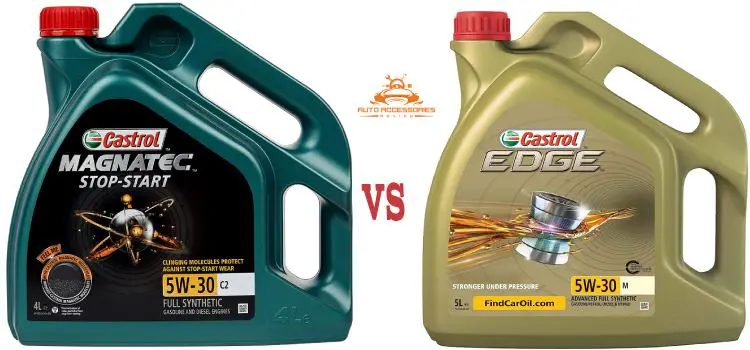
1. Technology
The Castrol Magnatec is unique in its use of what is essentially magnetic oil. The oil sticks to engine components so that even when the car hasn’t been driven, the engine is still lubricated on start-up. Unlike other oils that would usually drain into the sump.
The Castrol Edge uses fluid titanium technology to achieve an oil that maintains high performance under any pressure. When compressed, the oil hardens to form a more solid lubricant layer. When under free flow, the oil returns to a low viscosity; otherwise, it would clog the engine.
Which you should buy depends on the car. If you’re a high-speed driver with a performance car, the Edge is a winner. A fully synthetic oil that can withstand huge temperature flux and maintain good performance under high pressures will keep an engine under strain running smoothly.
However, if you find yourself on the morning commute in unbearable traffic where your engine is constantly on, off, on, off; Magnatec is the oil for your engine. Your engine should stay lubricated no matter how many times you idle.
2. Viscosity
The Castrol Edge is a thinner oil, getting thick under pressure and returning to a thin viscosity when flowing normally.
Magnatec is a thicker oil, designed for less demanding engines and with the key innovation being that it keeps key components lubricated even after the engine has been off for an extended time.
Thinner oils are preferable as they are better able to lubricate engine intricacies and have less of a chance of clogging the engine. The Edge is a winning oil when it comes to viscosity.
3. Applications
The Castrol Edge is a performance oil designed for high-pressure engines that tend to see a lot of temperature flux. These engines are usually petrol, but the Edge can be used in some Diesel engines, depending on specifications.
Castrol’s Magnatec is a thicker oil that focuses on the average commuter car. It works well in both petrol and diesel engines but is specifically designed to combat engine wear caused by idling and stop-starts from heavy traffic.
Which wins out depends on your use. Performance drivers will find the Edge’s applications more relevant, while the average city driver should get Magnatec to protect their engine.
4. Hot-pour testing
When heated, the Edge flows faster than it might usually, suggesting a noticeable change in viscosity. On the other hand, Castrol’s Magnatec still flows much slower than the Edge. This shows that Magnatec, the thicker oil, hasn’t seen a significant change in its viscosity.
Magnatec wins the hot-pour test as it maintains its thick viscosity even after being heated, whereas most oils would become thinner and flow faster.
5. Cold-pour testing
After both oils were cooled and poured, it can be seen that Edge flows much faster than the Magnatec. This suggests Magnatec became thicker post-cooling while Edge maintained its low viscosity.
Here, Edge wins. It shows that, even though Magnatec’s smart molecule technology will keep the engine lubricated even after the engine has cooled down, on start-up, Edge will perform better when flowing through the engine.
6. High-temperature performance
Per the results of hot pour testing, Magnatec maintains its thickness even under high temperatures. This contrasts with Castrol’s Edge which becomes noticeably thinner under higher temperatures.
For engines that a thicker oil is appropriate for, Magnatec’s resistance to high temperatures is a win.
7. Cold-temperature performance
As above, testing shows that Magnatec becomes thicker when it has been cooled. This makes the oil more liable to clog the engine in cold temperatures. Edge, however, maintains its low viscosity even after being cooled.
Results suggest that Edge will better flow in a cool engine after start-up and so Edge can be considered the better performing oil.
8. Fuel economy
Fluid titanium technology in Castrol’s edge will keep high-performance engines well lubricated for longer, improving their fuel economy.
Similarly, fuel lost to idling and repeated stop-starts can be minimized via Magnatec’s magnetic oil technology.
Both oils will improve the fuel economy of your car. Keeping the engine properly lubricated ensures that minimal energy is lost to friction between components. Which performs best and therefore improves your car’s mileage the most depends on how you use your car.
9. Price
Magnatec is a significantly cheaper oil, coming in at around $16-$20 a jug while Edge can be upwards of $25.
If you don’t notice performance differences when it comes to Magnatec vs Edge, you will notice the lighter load on your wallet.
Magnatec vs Edge: Which one should you get?
Which oil is for you hinges on what car you drive and how you drive it. Edge’s fluid technology allows it to perform well under high pressures, and Castrol is keen to emphasize that Edge is for the high-performance engine.
Magnatec is innovative with its magnetic oil; sticking to components and keeping them lubricated regardless of the state of the engine is important considering the current state of heavy traffic. City drivers and the regular commuter would benefit hugely from Magnatec.
FAQs
1. Can I mix Castrol Edge and Magnatec?
Ans. It’s not recommended to do so. They’re two different oils with different optimum conditions. However, you may be able to improve performance by mixing if you go through your engine specifications and get advice before doing so.
2. Which is better for a car with a lot of mileage?
Ans. Magnatec is a synthetic 10W-40 oil that can be readily used in cars with over 75,000 miles clocked and should be changed around every 6,000 miles. Edge High-Mileage is a variant of Edge that only needs to be changed every 10,000 miles.


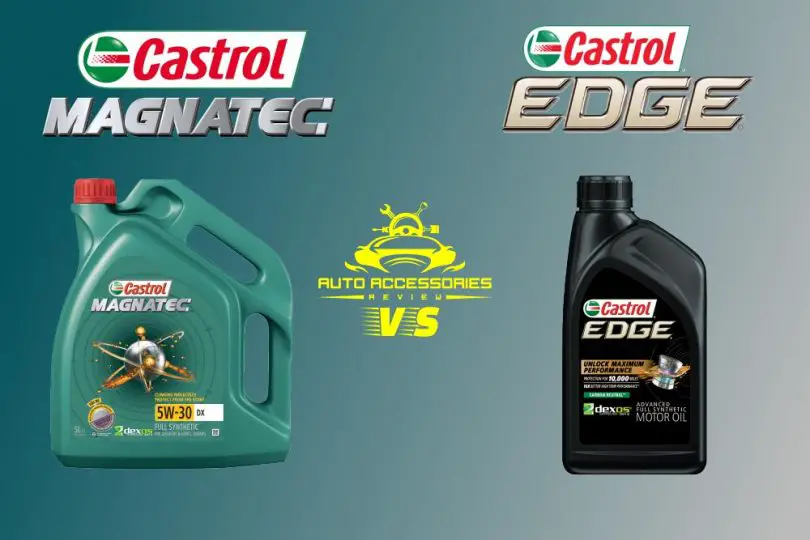
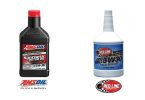
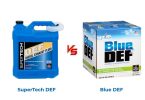

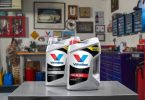
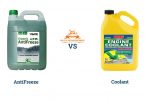
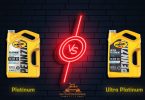

Leave a Comment